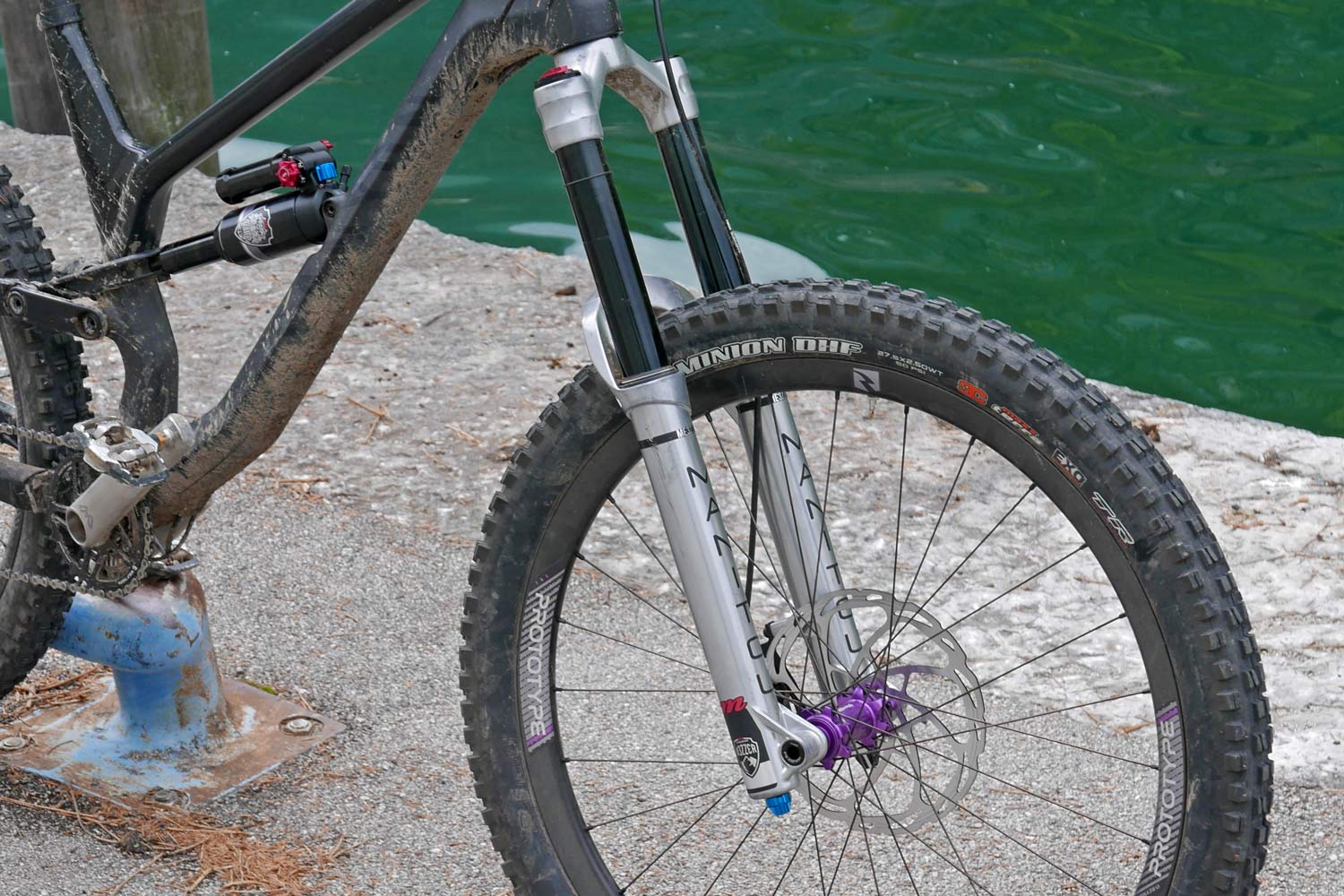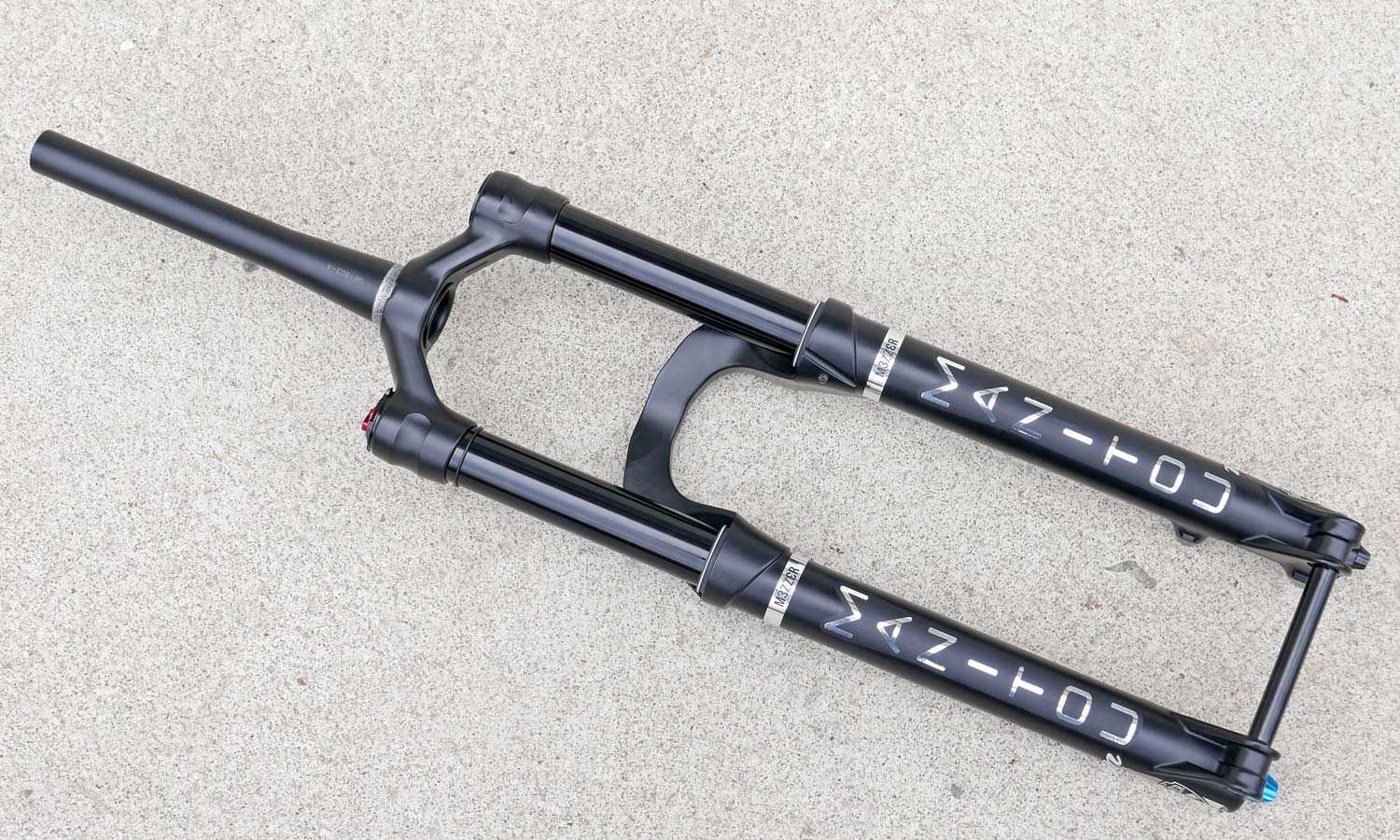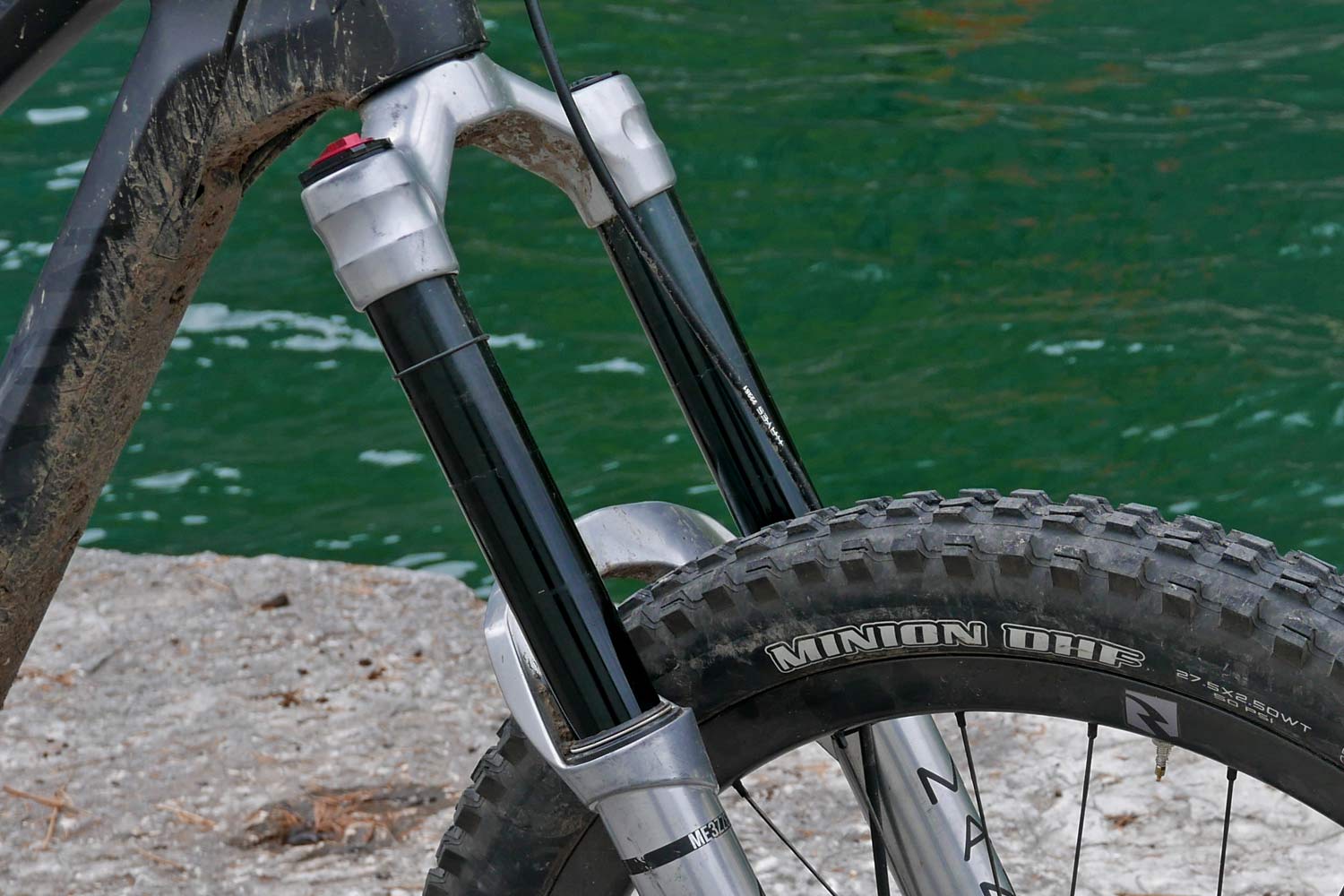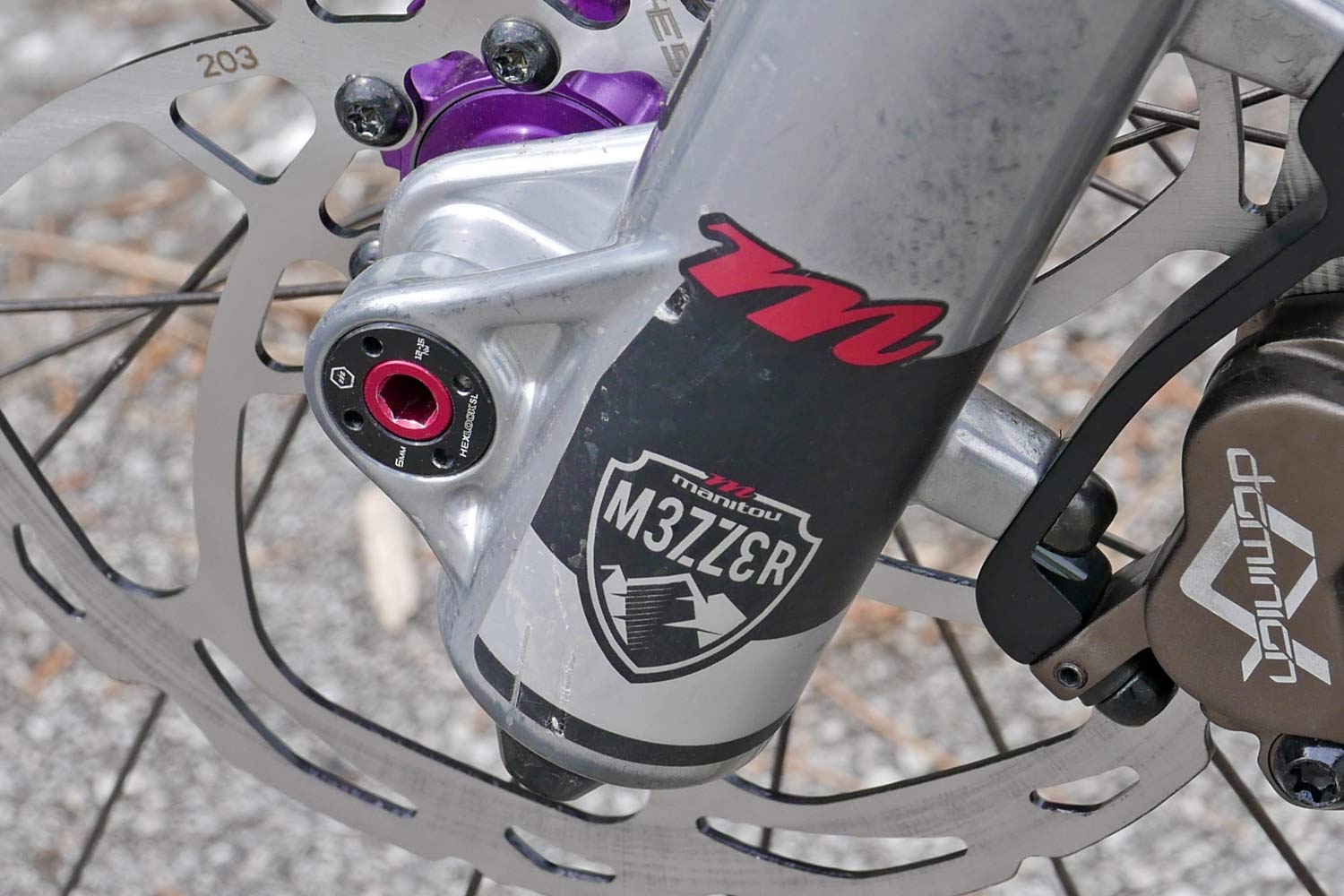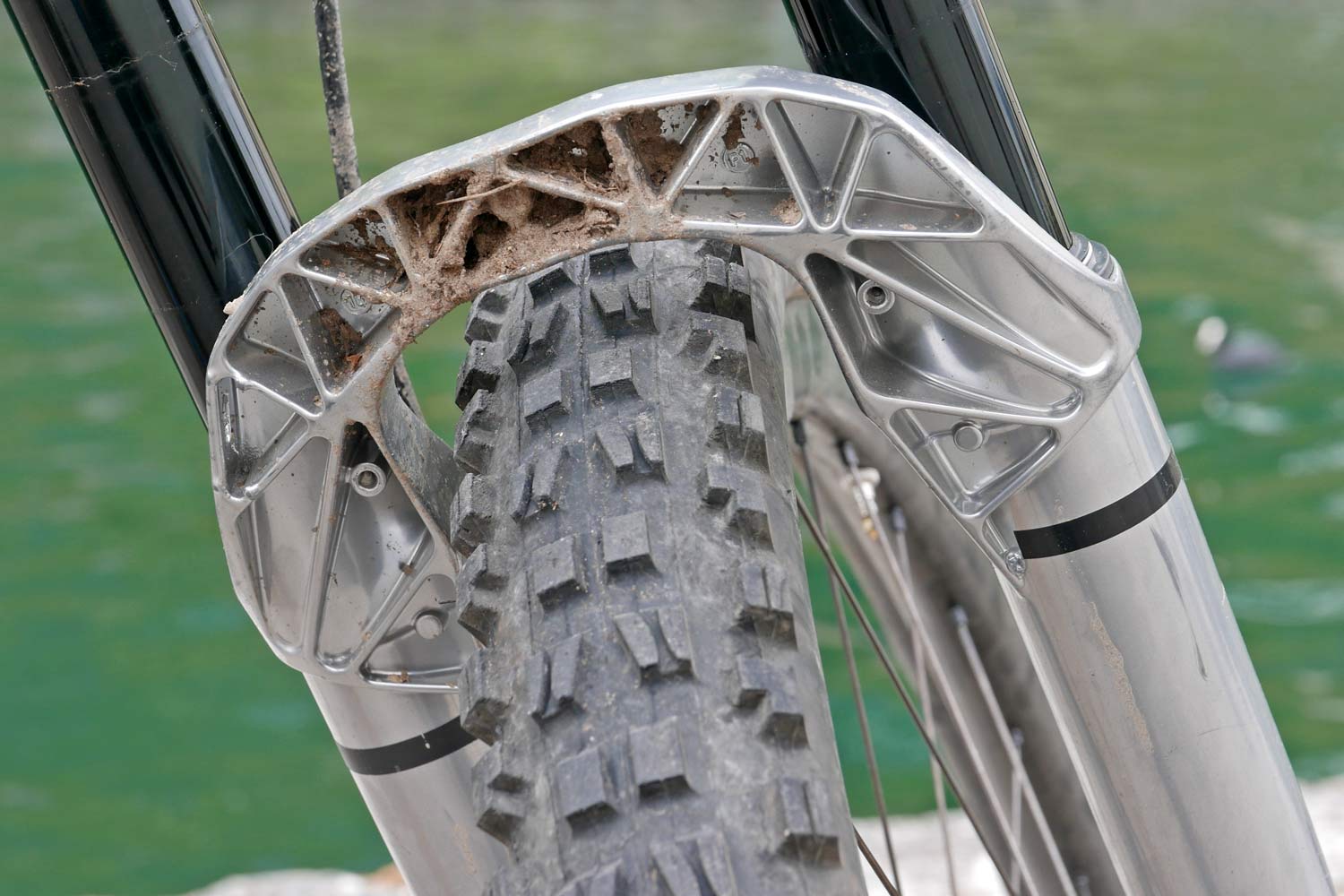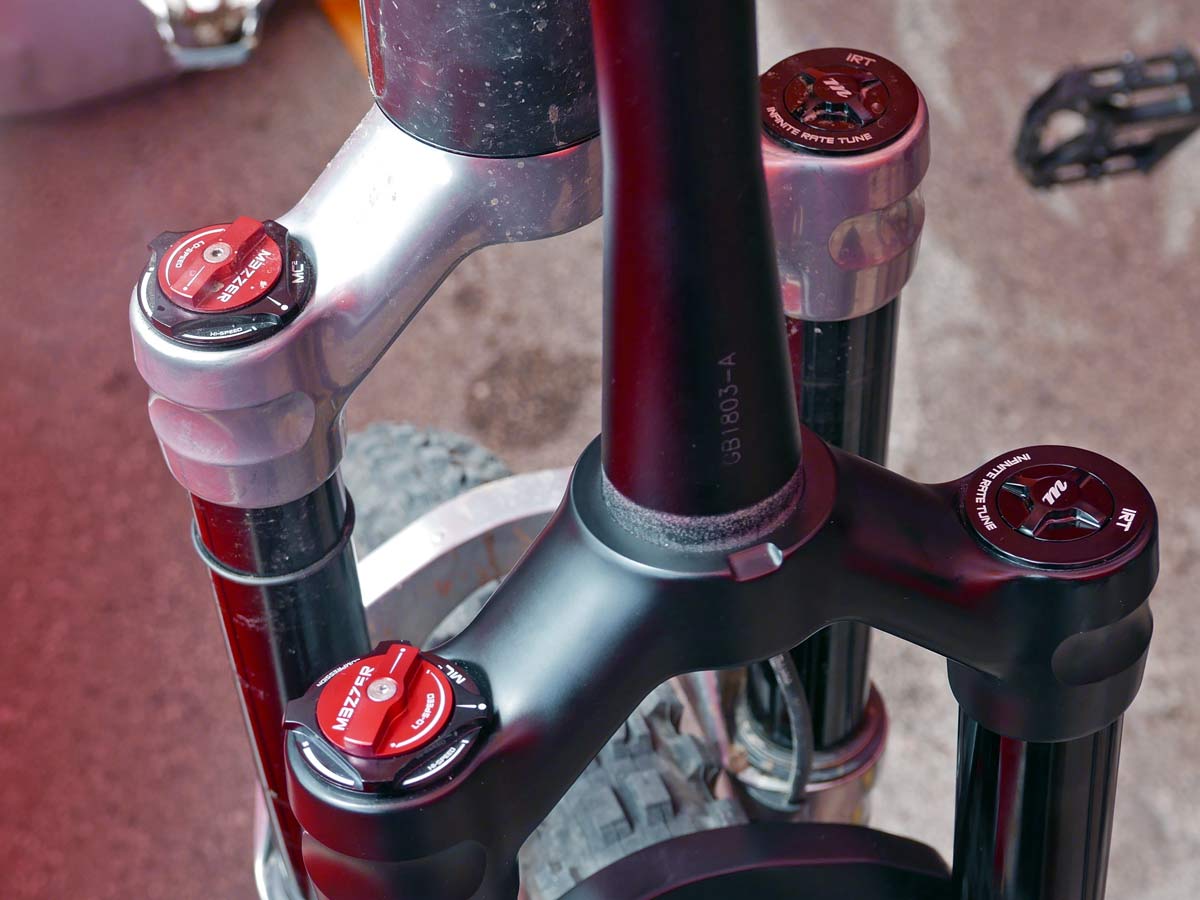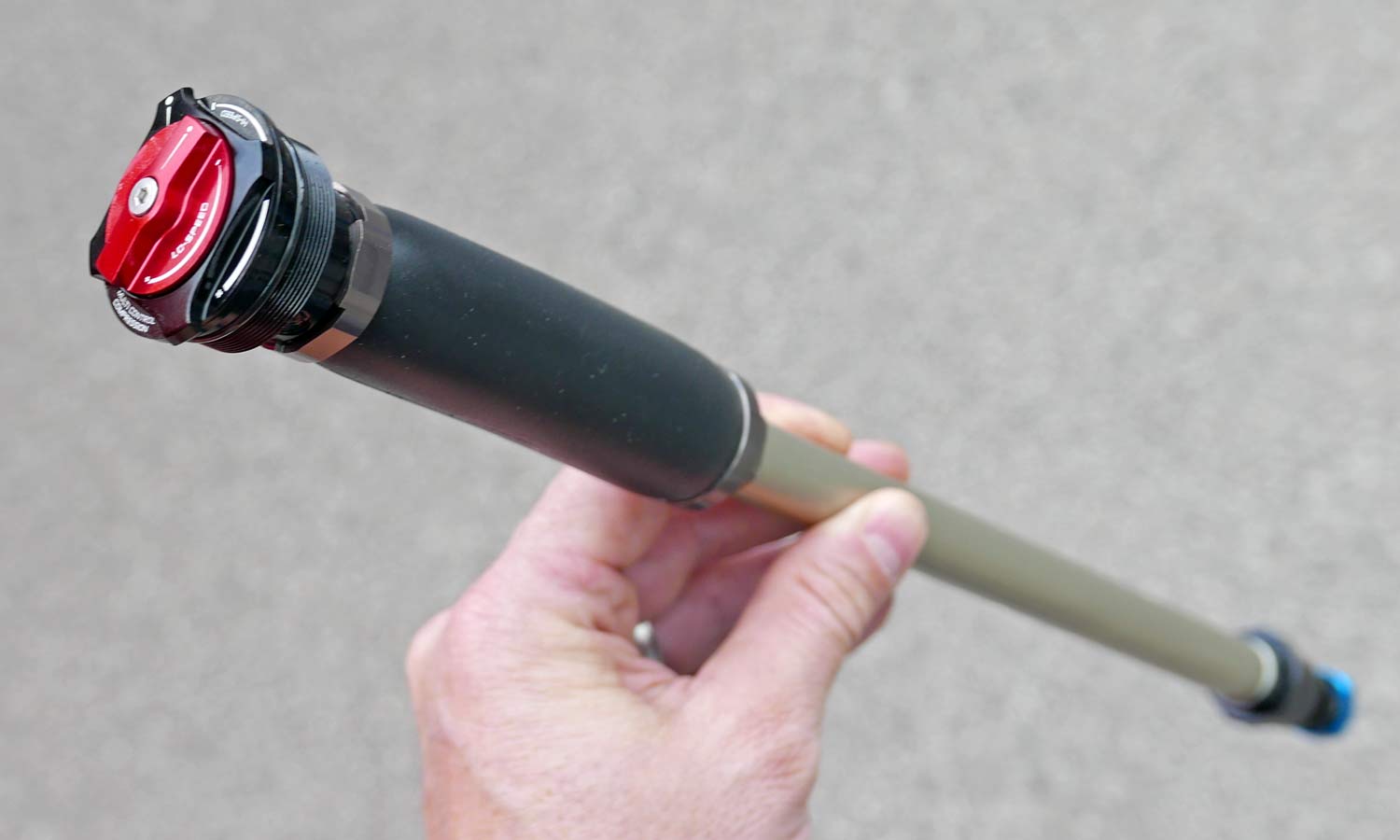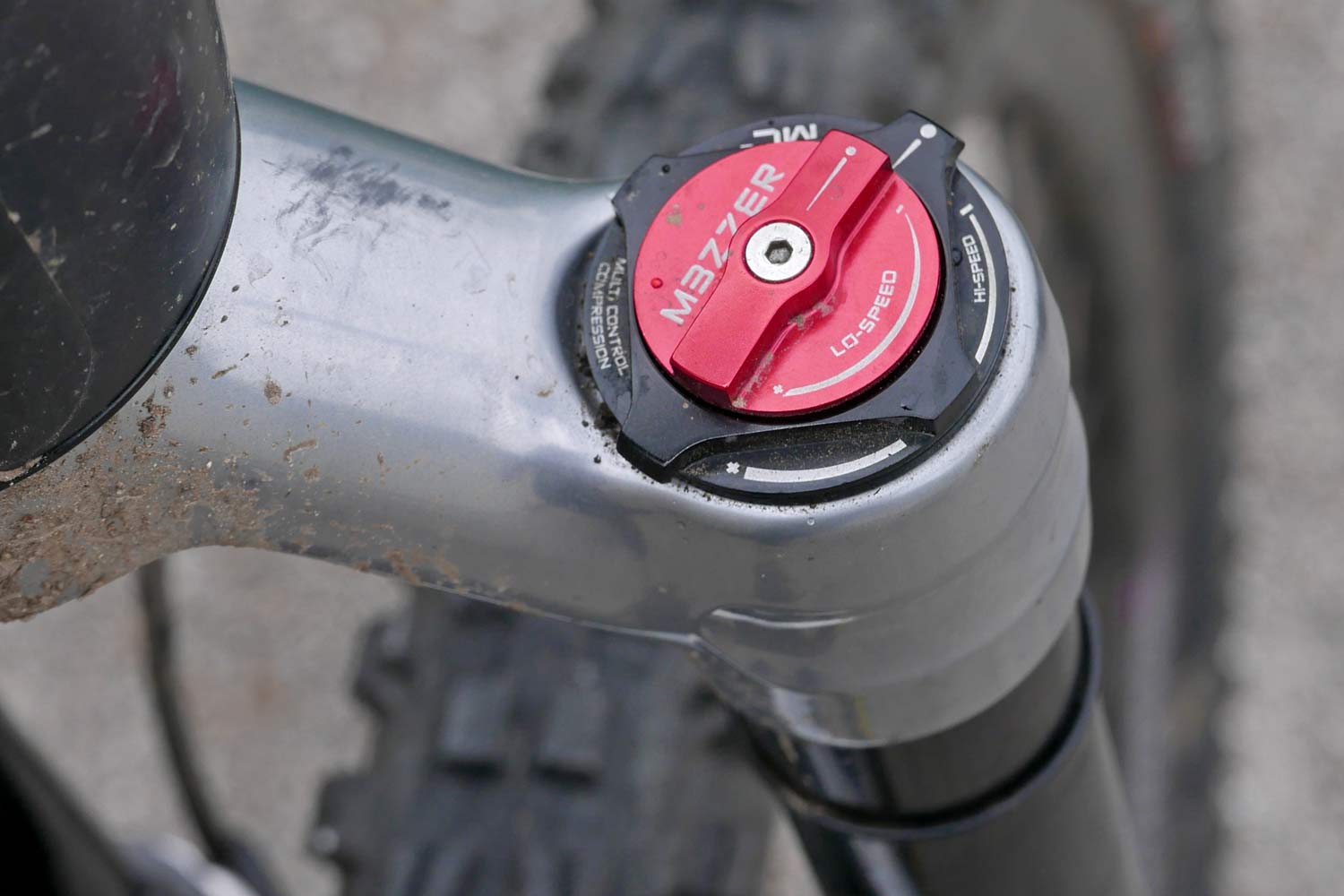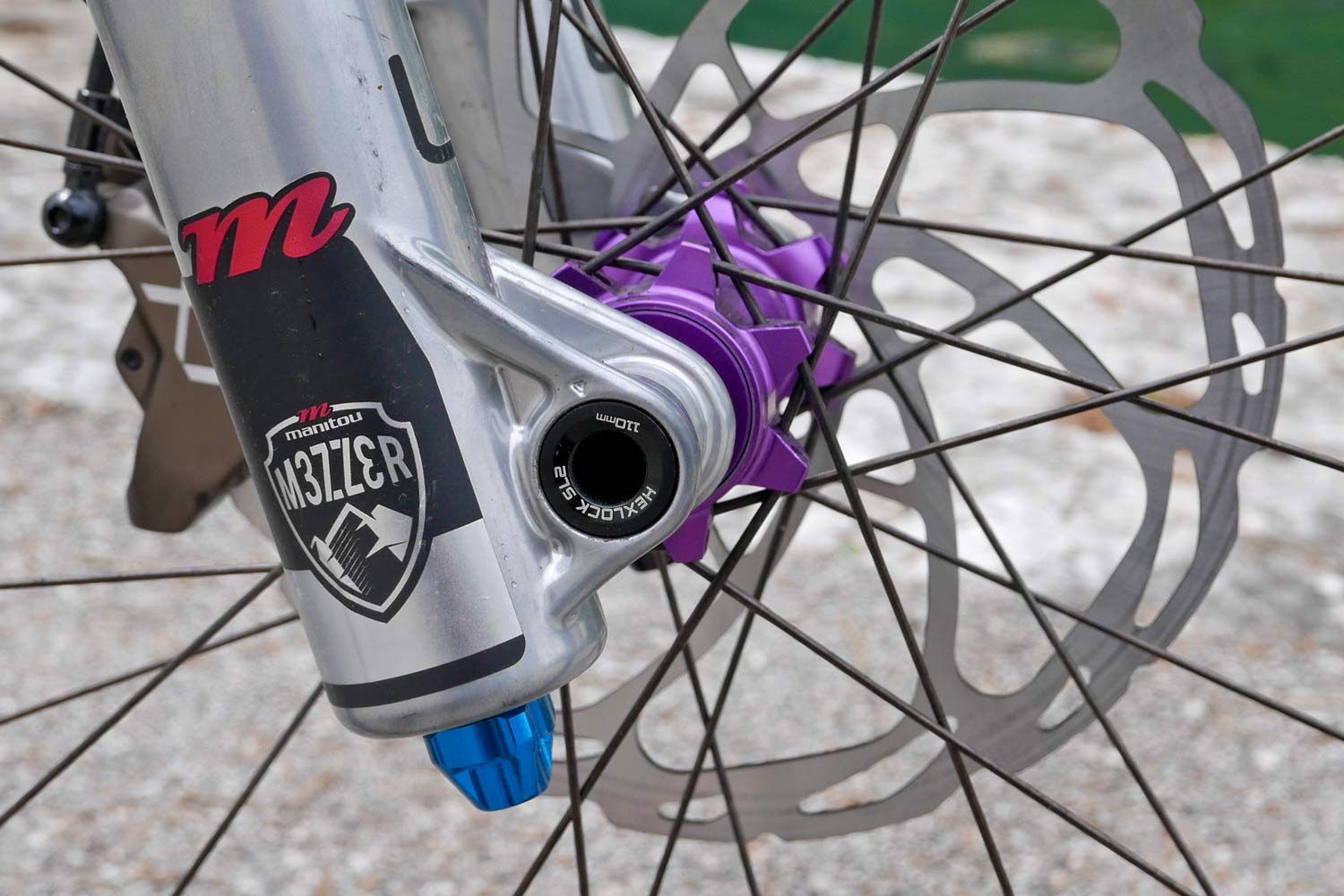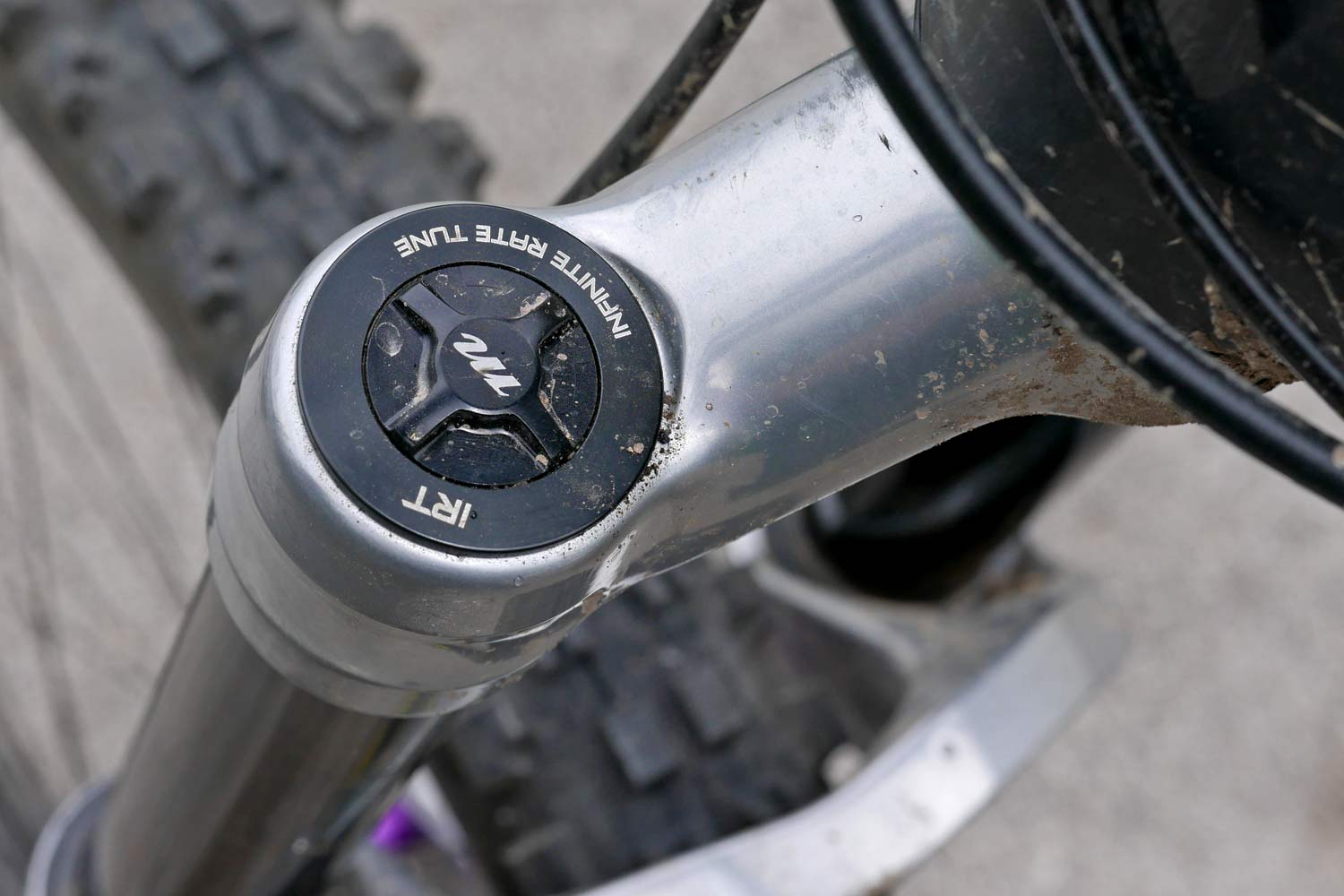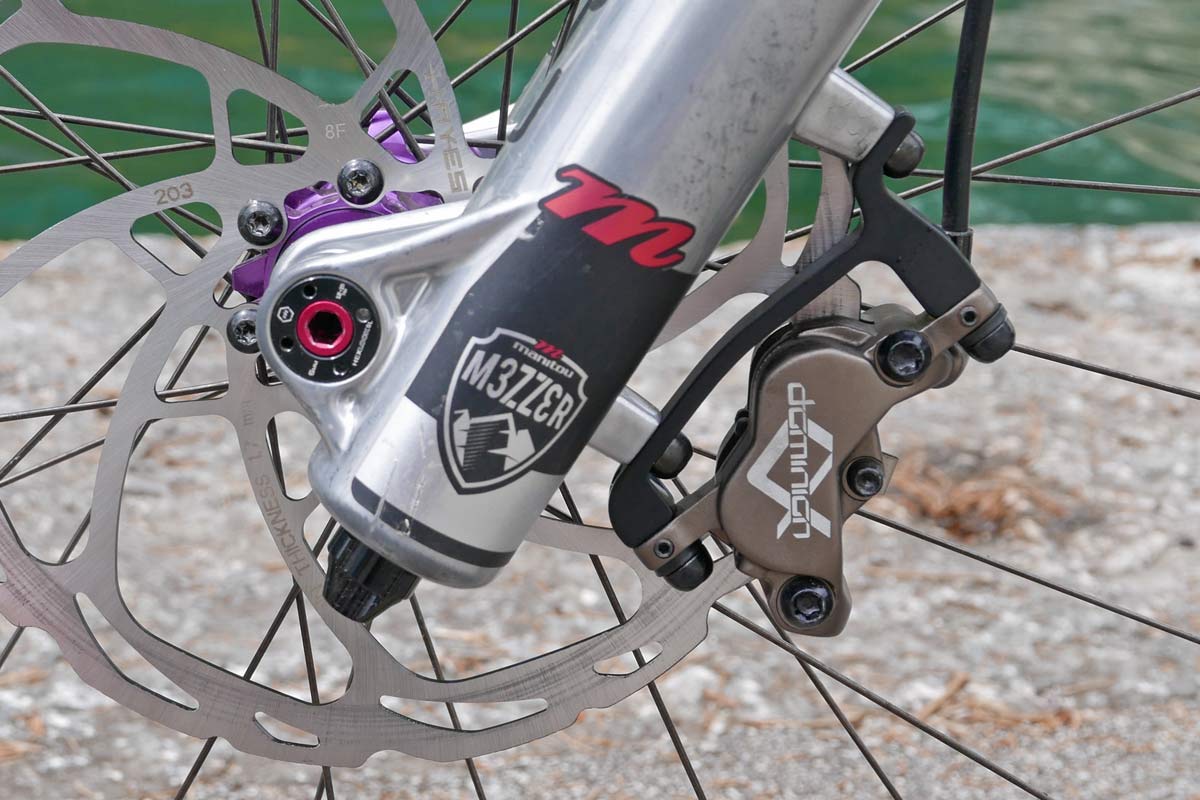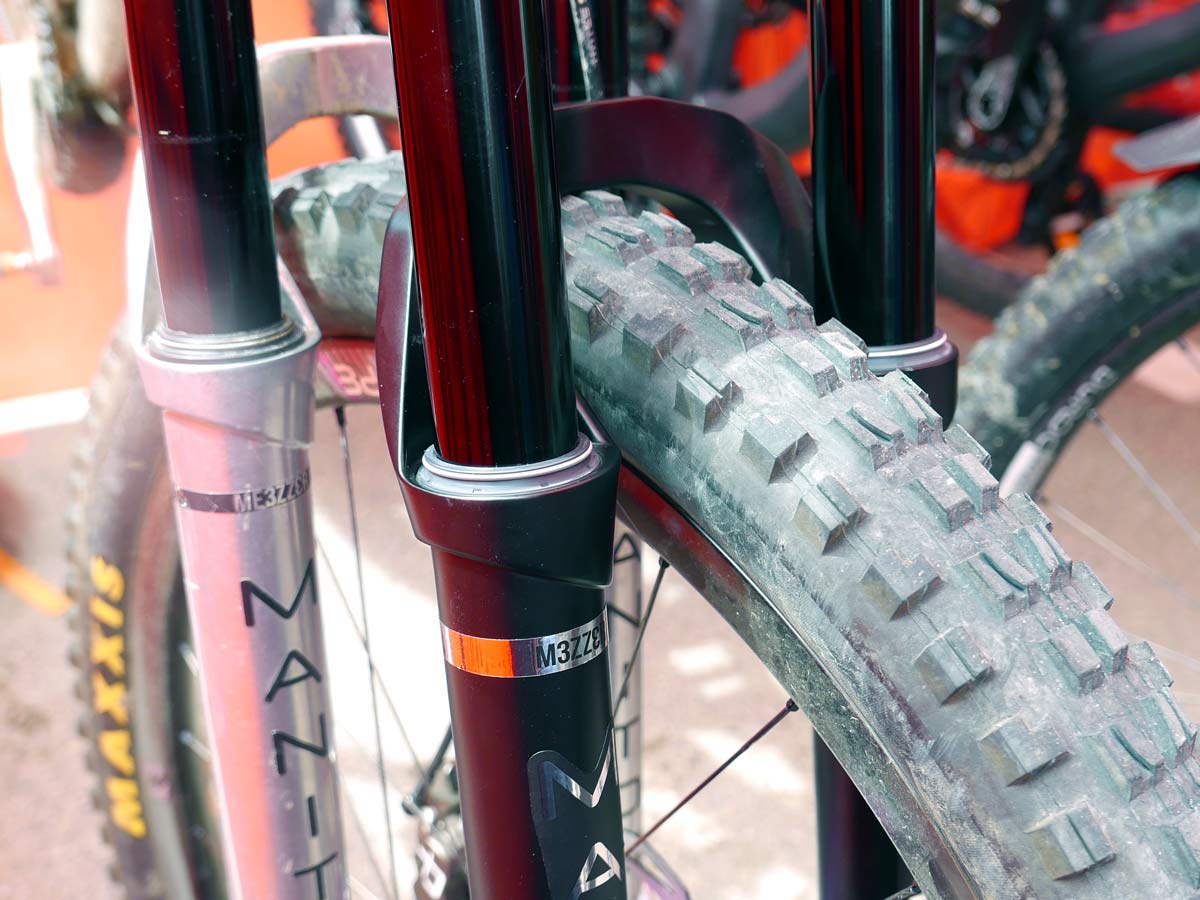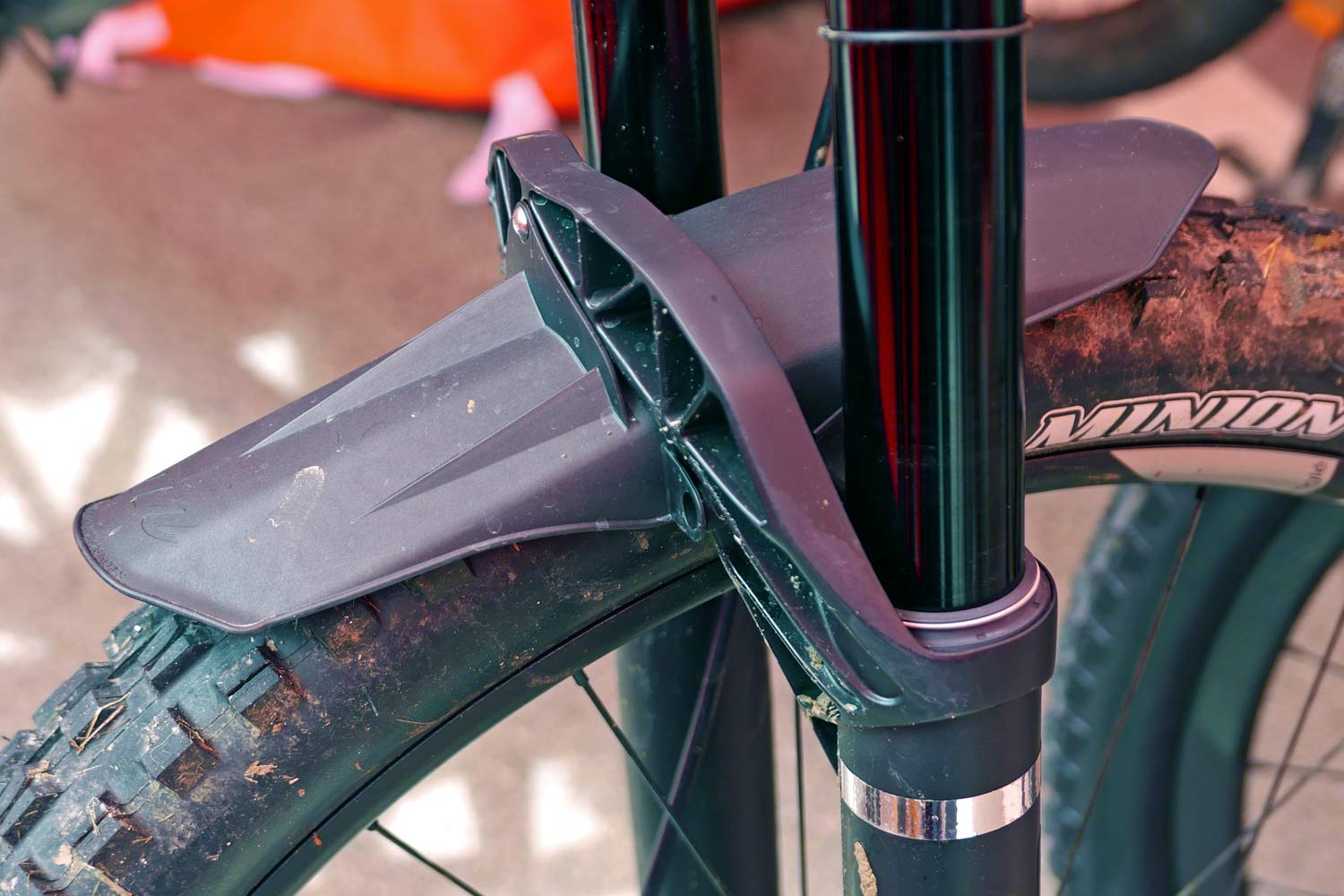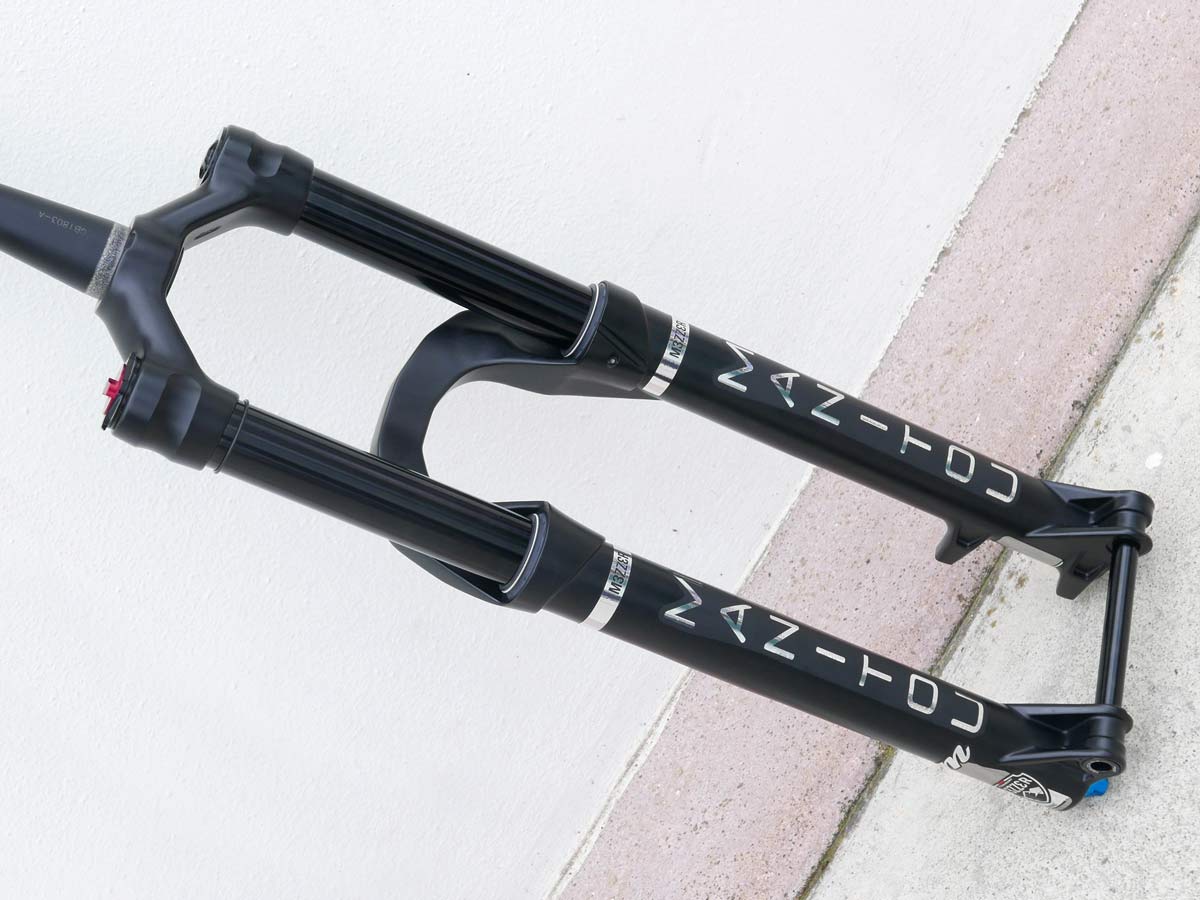The biggest trick up the new Hayes Enduro Collection sleeve is surely the 37mm stanchion family of Manitou Mezzer mountain bike forks. Developed as a category-killer to outperform every other light, long travel enduro fork on the market, Manitou packed all of their best gravity & trail internals into an all-new lightweight chassis that sheds every unnecessary gram.
Manitou Mezzer lightweight, long travel enduro MTB fork
For the new Hayes Enduro Collection, beyond the new Ringlé Super Bubba Clock’D hubs, product management gave the Manitou suspension engineers what they called an impossible task, to develop a 140-180mm travel enduro fork platform for 27.5″ & 29″ wheels, that needed to be stiffer than the competition while still hitting a weight target of 2kg or 4.4lb.
Reaching maximum stiffness
Stiffness is paramount in a versatile enduro fork. Long travel means a 180mm fork is going to get hucked off some crazy drops, and ridden down gnarly trails. So Manitou bumped up stanchion diameter and made sure to put all the material where it counts.
The Mezzer’s 37mm butted 7050 aluminum stanchions are only slightly bigger than other enduro forks, but together with an optimized Reverse Arch brace, hollow forged alloy crown with 1.5″ tapered alloy steerer, and a Hexlock SL3 15x110mm thru-axle, Manitou claims it is 30% stiffer than competition’s 36mm fork (ie. Fox 36.) That will be great for all types of trail riders, including eMTB as the Mezzer is also e-bike certified too.
How’d you lose all that weight?
To hit the light weight target, Manitou put the Mezzer on a diet, hunting for every place they could shed excess material. The deep webbing of supporting elements is probably most visible at the dropouts, which look thin compared to other aggressive trail forks. Manitou used FEA software to analyze the stresses throughout the fork, and shaved away any material that wasn’t supporting loads.
Less obvious at first glance, the webbing supports on the back of the fork arch vary more in size and spacing, becoming much thinner where they have shorter spans. Several webs were even completely eliminated where Finite Element Analysis based on the Mattoc fork identified them as redundant.
The result was that the 27.5 Boost-spaced fork with the full 180mm travel hit the 2000g target weight. The extra length of the lowers adds a few more grams for big wheels, up to a claimed 2032g for the 180mm 29er version. Also, interestingly enough, the shorter travel versions are a bit heavier. Each reduction of 10mm of travel requires additional internal reduction spacers, add about 10g per step – so roughly 2040g for 140mm 27.5 or 2072g for 140mm 29er.
More responsive & more adjustable with MC², TPC & IRT
Light and stiff on its own is nice, but it’s the internals that make a mountain bike fork. Inside the Mezzer is the best of the tech from the trail Mattoc & downhill Dorado to deliver supple and tunable performance.
The right fork leg packs the hydraulics into a sealed damper to keep air out and avoid cavitation.
Up top is the fully enclosed MC² hydraulic compression damper that offers independent external high-speed & low-speed compression adjustment. Inside is also the same Hydraulic Bottom Out protection (HBO) developed for downhill. HBO works inside the internal oil damper by pushing a plunger at the end of the fork travel into a separate chamber with holes for the oil to pass through at several steps. When the fork compresses at a normal rate, the oil flows smoothly through the HBO so you don’t feel it. But when you hit a massively huge drop, the last 30mm or so of travel is slowed down by HBO so you get smooth bottom out protection and a more bottomless feel. There is still a small elastomer bottom out bumper as well for that final end-of-stroke metal-on-metal protection, but because of HBO they say you will probably never feel a full bottom-out.
At the bottom of the sealed damper in the right leg is the TPC rebound cartridge. It offers a wide range of external low-speed rebound adjustment.
In the left leg is Manitou’s three chamber IRT air spring. The Infinite Rate Tune system includes two positive air chambers with a third negative chamber, all completely separate. Setup of the IRT is simple but critical to get full performance of the fork. The basic idea is that the primary positive and the negative springs are set to the same pressure and the secondary IRT positive chamber is set to around double the primary. So mid way through fork travel, the primary equalizes pressure with the secondary positive IRT chamber, increasing the effective positive chamber volume.
An air spring is more linear (and plush) at the beginning of fork travel before becoming stiffer & more progressive. With IRT you delay the progressive curve for more linear fork movement, and can tune the shock rate however you want it in that core middle of your fork’s travel.
The tricky part to setup is that first you must inflate the IRT to ~2x your desired positive pressure at the top of the left leg. Then you inflate both positive and negative chambers from the lower left leg. Importantly, pos & neg are not connected internally, but share the same special Schrader valve. When you thread a shock pump on the positive air will pressurize the gauge, but you have to keep spinning until the threaded collar is totally stopped to engage the secondary valve for the negative chamber. Simple, but tricky.
Adapt for the win
After all the tech in the light, stiff chassis, and broadly tunable internals, the Mezzer needed to be adaptable across a wide range of applications. Two wheel sizes 27.5” and 29” is the simplest of options with full length travel and clearance up to around a 2.8″ tire for either wheelsize. (Haye’s product manager’s bike was sporting 27.5 x 2.5″ tires with tons of space around for mud.) The fork is also available in three offsets 37mm, 44mm & 51mm to suit most any all-mountain to enduro setup.
Travel is adjustable with internal spacers from 140mm to 180mm in 10mm increments. Brakes are post mount 180mm, and hose routing can be run behind the brace or in front depending on rider preference with a clamshell hose clip. The fork brace also includes a 3-bolt mount for an integrated fender.
Pricing & availability
The new Manitou Mezzer (named for knife in German, messer) will be available mid summer (June/July 2019) for $999 / 1050€, and comes only in black with chrome graphics…a nod to the early days of Manitou. The silver fork is a pre-production prototype ridden & tested by Hayes’ product manager. It apparently got some good feedback from a wide range of sources, so Manitou is considering a special limited edition Mezzer in the future as well. We’ll let you know if “secret silver” turns up as an option.
